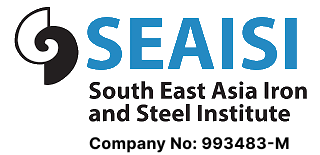Organization: From Engagement to Impact
CSC actively participates in activities organized by domestic institutes and associations to strengthen mutual cooperation. The major institutes and associations in which CSC participates are as follows:
Domestic Organization
Steel Industry| Organization | Roles of CSC | Visions & Goals |
|---|---|---|
| Taiwan Steel and Iron Industries Association |
CSC Chairman of the Board Chien-Chih Hwang as the chairman |
To assist the government with economic development and foreign investments and coordinate relationship among peers for the collaboration and development of the steel industry as well as common interests. |
| Chinese Institute of Engineers |
CSC President Shou-Tou Chen as a director |
To strengthen close ties and interactions with members and professional
institutes worldwide. To advance the technology, expertise and professionalism in engineering. To enhance the welfare of people and society by introducing applied engineering and advanced technology. |
| Organization | Roles of CSC | Visions & Goals |
|---|---|---|
| Taiwan Business Council for Sustainable Development | Enterprise member | To assist Taiwan's enterprises in developing sustainability strategies and aligning with international standards and practices, thereby advancing their role in global sustainable value chains. |
| Association of Atmosphere Protection in Taiwan | Director | To promote global atmospheric protection, including the preservation of the ozone layer, the prevention of the greenhouse effect, and the improvement of air quality, for the well-being of humankind; and to support the development and revision of related policies and regulations, as well as advance research, technology, guidance, and services in atmospheric protection. |
| Center for Corporate Sustainability | Director | To fulfill corporate social responsibility, promote sustainable development, and foster model enterprises that lead society and carry forward the mission of sustainability. |
| Taiwan-U.S. CCUS Industry Promotion Alliance | CSC Senior Advisor Shyi-Chin Wang is a founder | Net zero emissions is the international goal for mitigating climate change. We reviewed Taiwan's development opportunities and strategies for carbon neutrality and CCUS based on international development and promotion experience with carbon neutrality and CCUS, accelerating the achievement of carbon neutrality by domestic enterprises. |
| Taiwan Net Zero Emission Association | Founding member | Based on the core philosophy of “advocating for net zero emission among enterprises and organizations and assisting the government in making Taiwan carbon neutral,” Taiwan Net Zero Emission Association aims to guide all sectors of society in Taiwan towards net zero emission, drive the trend of net zero emission in Taiwan, and assist the government in making Taiwan carbon neutral. |
International Organization
| Organization | Means of Exchange and Cooperation | Benefit |
|---|---|---|

World Steel Association
|
As a Key Member
|
|

South East Asia Iron and Steel Institute
|
As a Key Member
|
|

Organization for Economic Co-operation and Development
|
CSC regularly participates in the meetings of the OECD Steel Committee under
the instruction of the Ministry of Economic Affairs, Taiwan (R.O.C.)
|
|
According to Article 1, Paragraph 2 of the Company Act, companies are allowed to engage in actions to enhance the public interest and fulfill their social responsibilities. This includes making donations of reasonable amounts of resources for the purposes of promoting public welfare, humanitarianism, and charity. We sponsor institutions, associations and other tax-exempt organizations based on this legal regulation.
According to Article 11 of the Ethical Corporate Management Best Practice Principles, CSC shall not donate political contributions. According to Article 8 and Article 10 of Procedures for Ethical Management and Guidelines for Conduct, CSC shall not sponsor facilitating payment, and charitable donations are restricted to charitable organizations to prevent any form of bribery. As such, we have not engaged in any political donations or lobbying activities.

Unit: NTD ten thousand
| Category | 2021 | 2022 | 2023 | 2024 | 2025 |
|---|---|---|---|---|---|
| Tax-exempt group (non-profits, etc) | 1,125 | 1,301 | 1,233 | 1,084 | 935 |
| Lobby, interest representation | 0 | 0 | 0 | 0 | 0 |
| Political campaign/organizations | 0 | 0 | 0 | 0 | 0 |
| Others | 0 | 0 | 0 | 0 | 0 |
Unit: NTD ten thousand
| Issue | Description of Engagement | Contribution and Membership Fee |
|---|---|---|
| International Steel Development |
|
745 |
| ESG Issue |
|
60 |
Unit: NTD ten thousand
| Organization | Contribution and Membership Fee |
|---|---|
| World Steel Association (worldsteel) | 707 |
| Taiwan Steel & Iron Industries Association | 36 |
| Center for corporate Sustainability, Taiwan Institute for Sustainable Energy | 28 |
Taiwan Government has amended Climate Change Response Act and declared to reach net zero emission by 2050 in order to align with Paris Agreement. CSC proactively responds to Government’s GHG Periodic Regulatory Goals and Net-Zero Vision. We keep on engaging in consultations with government agencies and formulate our decarbonization strategies to echo Government’s carbon reduction policies.
CSC actively collaborate with a range of climate-focused domestic and international organizations, and are committed to ensuring that all our indirect climate advocacy actions remain consistent with the Paris Agreement. We will continue to work with these organizations to further align their goals with the Paris Agreement.
For organizations taking a public climate stance that is misaligned with the international or domestic sustainable development goals, we, in compliance with relevant laws and regulations, will take the following actions:
- Reiterate our stance on climate change or sustainable development goals to the organization.
- Request the organization to adjust its climate change stance within six months of our reiteration to align with international or domestic sustainable development goals. If the organization fails to comply within the specified period, we will terminate our cooperation with the organization.
Climate Positions Disclosure
Institutes and associations play an important enabling role in addressing climate change within a broad community. Be it large or small, focused or broad, they can facilitate information sharing and relationship building, provide a forum for stakeholders to collaborate on addressing environmental problems, and allow the industry to have a collective voice in public policy debates. Therefore, the climate positions of the organizations we participate in are regularly reviewed to high standards. We expect them to publish their climate positions and align with the Paris Agreement or support a global transition to net zero.
The table shows the all publicly disclosed climate positions of our institute and association memberships.
| Organization | Climate Position |
|---|---|
| World Steel Association |
High-level support for the Paris Agreement
World Steel Association’s policy paper “Climate change and the production of iron and steel” which indicates support of the aims of the Paris Agreement. (More) |
| Taiwan Net Zero Emissions Association (TNZEA) |
High-level support for net zero by 2050
TNZEA encourages industries to actively engage in transformation efforts, striving to achieve net zero greenhouse gas emissions by 2050.Through proactive carbon reduction initiatives, we continuously promote and advocate for net zero emissions, leading various sectors in Taiwan through action to fulfill our shared responsibility of protecting the Earth's environment. (More) |
| Taiwan-US Carbon Capture, Utilization and Storage (CCUS) Industries Promotion Alliance (TUCA) |
High-level support for net zero by 2050
The common goal of TUCA is to work towards mitigating the impact of global greenhouse gas emissions, improving the living environment and quality of life for people around the world. This embodies the principles of a circular economy and creates a new industrial chain and economic model, promoting Taiwan's goal of achieving net-zero emissions by 2050. (More) |
| Taiwan Investor Relations Institute (TIRI) |
High-level support for the global transition to net zero
TIRI supports the global transition to net zero and encourages various industries to actively participate by offering related courses. (More) |
| Taiwan Business Council for Sustainable Development (BCSD Taiwan) |
High-level support for net zero by 2050
BCSD Taiwan actively supports its members in creating the necessary scale to achieve sustainable transformation of their businesses and value chains, with the aim of reaching the net-zero emissions target by 2050. (More) |
The Company regularly reviews the climate positions of the organizations it participates in. The Company publishes survey results of climate policy preferences in the organizations it is involved with. This questionnaire will be conducted on a biennial basis, and the updated results will be published on the corporate website.
To better understand the climate-related actions of the organizations in which the Company participates—and to assess the extent to which their positions align with the goals of the Paris Agreement and the Company’s own climate stance—the Company has conducted a questionnaire survey to evaluate these organizations’ climate policy orientations and implementation practices. This initiative demonstrates the Company’s support for and commitment to global efforts in mitigating the impacts of climate change.
In 2025, a total of 69 organizations were invited to complete the questionnaire, and 40 valid responses were received, resulting in an effective response rate of 57.97%. The distribution of alignment between each organization's climate policy and the Company's position is summarized in the table below.
Organizational Alignment with CSC’s Climate Position
Aligned
- 55.00%
Partially aligned
- 20.00%
Not engaged
- 25.00%
Misaligned
- 0.00%
Among the 40 valid responses, 55% of the organizations indicated climate policies that are aligned with the Company’s position. An additional 20% have begun to show preliminary awareness of or discussions around their own climate stance. Notably, none of the responding organizations held positions that conflicted with that of the Company. Overall, the results indicate that the Company’s climate policy direction is supported by a majority of participating organizations and reflects a strong foundation of consensus.
